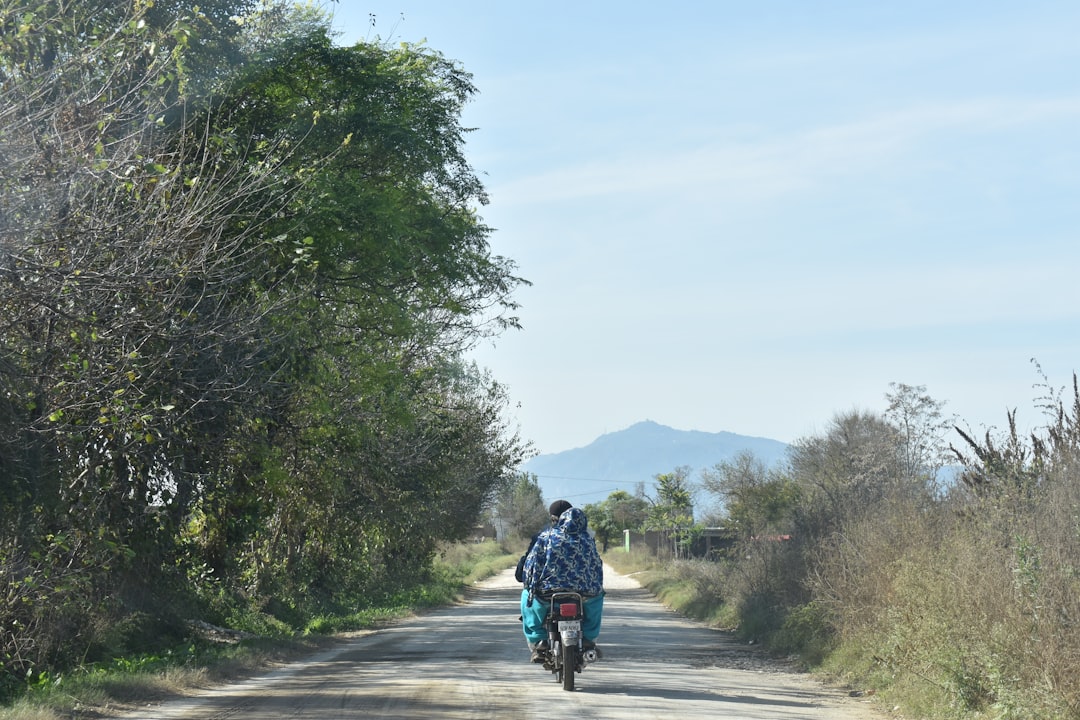In an era where global connectivity is at its peak, the way we travel has never been more scrutinized. As we navigate 2025, a profound shift is underway: travelers are increasingly prioritizing experiences that not only enrich their lives but also respect the planet and its people. This growing movement, known as eco-travel or sustainable tourism, is transforming the industry, moving beyond mere trends to become a fundamental aspect of modern exploration.
Did you know that the global sustainable tourism market is projected to reach over $300 billion by the end of the decade, reflecting a significant consumer demand for ethical choices? This article will delve into what eco-travel truly means, why it’s more crucial than ever, and how you can embark on your own responsible adventures. We’ll explore practical tips, highlight emerging trends, and equip you with the knowledge to make a positive impact wherever your journey takes you.
Understanding Eco-Travel: More Than Just Greenwashing
Eco-travel, often used interchangeably with sustainable tourism, is a conscious approach to exploring the world. It’s about minimizing negative impacts while maximizing positive ones, ensuring that destinations remain vibrant for future generations. This philosophy extends beyond simply recycling or saving water; it encompasses a holistic view of environmental, social, and economic responsibility.
Defining Sustainable Tourism
The United Nations World Tourism Organization (UNWTO) defines sustainable tourism as “tourism that takes full account of its current and future economic, social and environmental impacts, addressing the needs of visitors, the industry, the environment and host communities.” This definition highlights the interconnectedness of various factors, emphasizing long-term viability. It’s about finding a balance that benefits everyone involved, from the traveler to the local ecosystem.
The Core Principles of Responsible Exploration
At its heart, eco-travel adheres to several key principles designed to foster respectful and beneficial interactions. These principles guide travelers and tourism providers alike in making choices that promote sustainability.
- Minimize Environmental Impact: Reducing carbon footprint, conserving resources, and protecting wildlife and natural habitats.
- Respect Local Cultures: Engaging authentically with local communities, respecting traditions, and supporting cultural preservation.
- Benefit Local Economies: Ensuring that tourism revenue directly supports local businesses, artisans, and service providers.
- Promote Education and Awareness: Encouraging travelers to learn about the destinations they visit and understand the impact of their choices.

Why Sustainable Travel Matters in 2025
The urgency for sustainable travel has never been greater. As global tourism continues to expand, its potential impacts – both positive and negative – become more pronounced. In 2025, with increasing awareness of climate change and social inequalities, travelers are seeking ways to align their values with their adventures.
Environmental Impact Reduction
Traditional tourism often contributes significantly to environmental degradation, from carbon emissions generated by air travel to waste accumulation in popular destinations. A 2023 report by the World Travel & Tourism Council (WTTC) highlighted that the travel and tourism sector accounted for approximately 8.1% of global greenhouse gas emissions in 2019. Sustainable practices aim to mitigate these effects by promoting lower-impact transportation, responsible waste management, and conservation efforts.
Supporting Local Economies and Cultures
Beyond environmental concerns, sustainable travel plays a vital role in fostering economic equity and cultural preservation. By choosing locally owned businesses, eating at local restaurants, and purchasing artisan crafts, travelers ensure that their money directly benefits the communities they visit. This approach helps prevent “leakage,” where tourism revenue leaves the local economy, and instead empowers residents.
Moreover, respectful engagement with local customs and traditions helps preserve cultural heritage. This includes learning a few phrases of the local language, dressing appropriately, and participating in authentic cultural experiences rather than commercialized ones.
For more in-depth data on the environmental and social contributions of the travel sector, explore the WTTC Environmental & Social Impact Research, which provides comprehensive reports on these critical areas.
Practical Steps for Your Next Eco-Adventure
Embarking on a sustainable journey doesn’t require extreme measures; it’s about making conscious choices at every stage of your trip. From planning to packing, small adjustments can lead to significant positive impacts.
Choosing Eco-Friendly Accommodations
When selecting where to stay, look for hotels, guesthouses, or eco-lodges that actively implement sustainable practices. Many establishments now proudly display certifications from organizations like Green Globe, LEED, or EarthCheck, indicating their commitment to environmental stewardship.
- Look for Certifications: Reputable certifications ensure adherence to environmental and social standards.
- Inquire About Practices: Ask about their waste management, water conservation, energy efficiency, and local hiring policies.
- Support Local Stays: Opt for locally owned boutique hotels or guesthouses over large international chains when possible.
Mindful Transportation Choices
Transportation is often the largest contributor to a trip’s carbon footprint. Making informed decisions here can drastically reduce your environmental impact.
- Prioritize Direct Flights: If flying, direct flights typically use less fuel than those with layovers.
- Embrace Public Transport: Utilize trains, buses, and local transit systems at your destination.
- Walk or Bike: Explore cities and towns on foot or by bicycle whenever feasible, offering a more immersive experience.
- Consider Carbon Offsetting: While not a perfect solution, offsetting your flight emissions through certified programs can contribute to environmental projects.
Responsible Activities and Interactions
Your activities during a trip also present opportunities to practice sustainability. Choose experiences that are genuinely beneficial and respectful.
- Support Ethical Wildlife Tourism: Avoid attractions that involve animal exploitation or unnatural interactions. Opt for reputable wildlife sanctuaries or observation tours.
- Reduce Waste: Carry a reusable water bottle, coffee cup, and shopping bag to minimize single-use plastics.
- Be a Conscious Consumer: Buy local, handmade souvenirs and avoid items made from endangered species or unethically sourced materials.
Navigating Challenges and Avoiding Greenwashing
While the rise of eco-travel is positive, it also brings challenges, notably the prevalence of “greenwashing.” This refers to the deceptive practice of companies or organizations making unsubstantiated claims about their environmental friendliness. Being an informed traveler is key to distinguishing genuine efforts from marketing ploys.
Identifying Genuine Eco-Practices
To ensure your choices truly contribute to sustainability, look for transparency and verifiable actions. Genuine eco-friendly businesses often provide detailed information about their practices, certifications, and community involvement. They are typically open about their challenges and ongoing efforts to improve.
“True sustainability is not just about what you do, but how you do it, and the impact it has on the entire ecosystem – both natural and human.” – A common sentiment among sustainable tourism advocates.
Common Pitfalls to Avoid
Be wary of vague claims or those that lack specific details. For instance, a hotel claiming to be “eco-friendly” without mentioning specific initiatives like solar power, water recycling, or local sourcing might be greenwashing. Similarly, tours that promise “authentic cultural experiences” but involve staged performances or exploitative interactions should be avoided.
Research is your best tool. Read reviews, check for third-party certifications, and look for consistent messaging across different platforms.

The Future of Responsible Exploration
As we look ahead, the landscape of sustainable travel is continuously evolving, driven by innovation, increased consumer demand, and global collaboration. The future promises even more integrated and impactful ways to explore our world responsibly.
Emerging Trends in Eco-Tourism
Several exciting trends are shaping the future of eco-travel. These include the rise of regenerative tourism, which aims to leave a place better than it was found, and slow travel, which encourages deeper engagement with a single destination.
- Regenerative Tourism: Moving beyond “do no harm” to actively contributing to the restoration of ecosystems and communities.
- Slow Travel: Emphasizing longer stays, local immersion, and reduced travel pace to minimize environmental impact and maximize cultural exchange.
- Carbon-Neutral Travel Options: Growing availability of electric vehicles, hydrogen-powered transport, and highly efficient public transit networks.
Technology’s Role in Sustainability
Technology is playing an increasingly crucial role in facilitating sustainable travel. From apps that help you find eco-friendly businesses to platforms that track your carbon footprint, digital tools are empowering travelers to make more informed choices. Blockchain technology is even being explored for transparent supply chains in tourism, ensuring ethical sourcing and fair wages.
Comparative Environmental Impact of Travel Modes
Understanding the carbon footprint of different transportation methods can help you make greener choices.
| Travel Mode | CO2 Emissions (per passenger-km) | Typical Impact |
|---|---|---|
| Long-Haul Flight | ~150-250g | High |
| Car (Solo Driver) | ~100-150g | Medium-High |
| Train (Electric) | ~6-30g | Low |
| Bus | ~30-80g | Low-Medium |
| Bicycle/Walking | 0g | Very Low |
Note: Figures are approximate and can vary based on vehicle efficiency, occupancy, and energy source.
Embark on Your Responsible Journey
Eco-travel is more than a niche market; it’s a philosophy that encourages us to be better global citizens. By understanding its principles, making conscious choices, and staying informed, you can transform your travels into meaningful experiences that benefit both you and the world around you. Every decision, from choosing your accommodation to selecting your mode of transport, contributes to a larger impact.
Start small, educate yourself, and inspire others. Your next adventure can be a powerful force for good.
Ready to Make a Difference?
What steps will you take to make your next trip more sustainable? Share your thoughts and tips in the comments below!
For further reading on sustainable travel initiatives and global efforts, consider exploring resources from the UNWTO’s Sustainable Development page and the Global Ecotourism Network (GEN). These organizations offer valuable insights and guidelines for both travelers and industry professionals.

